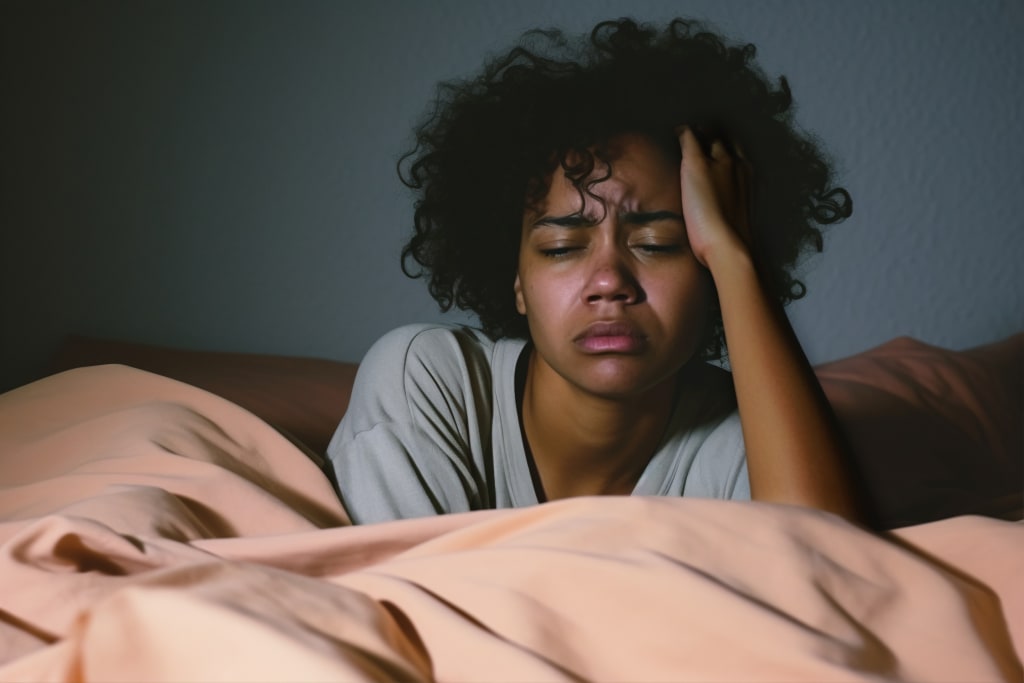The Deadly Consequences of Sleep Deprivation
Why you need to prioritise sleep

Sleep deprivation is more than just an inconvenience; it's a serious health risk that can lead to severe consequences, both mentally and physically. The United Nations even classifies prolonged sleep deprivation as a form of torture. Understanding the effects of sleep deprivation and the importance of adequate sleep is crucial for maintaining overall health and well-being.
The Gradual Decline: Hours Without Sleep and Their Effects
18 Hours Without Sleep:
Mimics Drunkenness: After 18 hours of wakefulness, your cognitive abilities start to decline, resembling the effects of a blood alcohol content (BAC) of 0.05%, equivalent to three or four drinks in two hours.
Impaired Coordination: You may feel foggy, less alert, and uncoordinated, experiencing symptoms like double or blurry vision.
24 Hours Without Sleep:
Increased Impairment: At this stage, your BAC comparison jumps to 0.1%, higher than the legal driving limit in most states.
Brain Cell Slowdown: Sleep deprivation slows down brain cells' ability to communicate, exacerbating coordination and cognitive issues.
36 Hours Without Sleep:
Higher Illness Risk: Your immune system becomes compromised, making you more susceptible to illnesses.
Microsleeps: Your body starts experiencing microsleeps, brief periods of sleep lasting around 30 seconds, which can be dangerous if you're performing tasks like driving.
48 Hours Without Sleep:
Severe Hallucinations: Visual, sensational, and auditory hallucinations become more pronounced, with objects appearing to grow, move, or distort.
Cognitive Decline: You may experience depersonalization, feeling detached from reality, coupled with extreme anxiety, irritability, and stress.
72 Hours Without Sleep:
Complete Mental Overload: Simple tasks become overwhelming, and emotional regulation deteriorates significantly. Hallucinations become more complex and vivid, further distorting reality.
Paranoia and Delusions: Increased risk of paranoia, depression, and delusions as your mental state continues to decline.
96 Hours Without Sleep:
Psychosis: Extended sleep deprivation can lead to sleep-deprivation psychosis, causing a total disconnect from reality. This condition can result in severe paranoia and hallucinations.
Historical Cases: Historically, sleep deprivation has been used to extract confessions, as seen in witch trials where prolonged wakefulness led to psychotic breaks.
The Long-Term Effects of Chronic Sleep Deprivation
Health Issues: Regular sleep deprivation can lead to long-term health problems such as weight gain, acne, headaches, high blood pressure, and other serious conditions.
Recovery Time: It takes a considerable amount of time to recover from lost sleep. For instance, losing just one hour of sleep can require up to four days to fully recover.
Tips for Maintaining Healthy Sleep Habits
1. Prioritize Consistency: Aim for 7-8 hours of sleep each night to avoid the need for a recovery period.
2. Create a Sleep-Friendly Environment: Ensure your bedroom is conducive to sleep by keeping it dark, quiet, and cool.
3. Limit Stimulants: Avoid caffeine and other stimulants, especially in the hours leading up to bedtime.
4. Develop a Routine: Establish a regular sleep schedule by going to bed and waking up at the same time every day.
Conclusion
### Conclusion
Sleep is not a luxury; it's an essential component of a healthy life. The severe consequences of sleep deprivation, including impaired cognitive function, increased risk of illness, and mental health issues, underscore the critical importance of prioritizing adequate sleep. Prolonged wakefulness can lead to hallucinations, paranoia, and even sleep-deprivation psychosis, highlighting the extreme impact on mental health. Historical cases, such as the use of sleep deprivation in witch trials, demonstrate the profound effects of extreme sleep loss.
Chronic sleep deprivation also poses significant long-term health risks, including weight gain, high blood pressure, and a weakened immune system. Recovery from sleep loss is not immediate; it can take several days to bounce back from even a single hour of missed sleep. Therefore, maintaining consistent sleep habits is crucial for overall well-being.
To protect your health, aim for 7-8 hours of sleep each night, create a conducive sleep environment, limit caffeine intake, and establish a regular sleep schedule. These steps can help prevent the need for a recovery period and ensure you remain healthy, alert, and functioning at your best.
By understanding the severe consequences of sleep deprivation and adopting healthy sleep practices, you can significantly improve your quality of life. Remember, prevention is always better than cure. Make sleep a priority to avoid the detrimental effects of sleep deprivation and enjoy a healthier, more balanced life. Investing in good sleep hygiene today can lead to better mental and physical health, enhancing your overall well-being and productivity.
About the Creator
Your Favorite Writer
A well-versed woman in life experiences, scientific sources and results. I love God! I love nature.
Enjoyed the story? Support the Creator.
Subscribe for free to receive all their stories in your feed.






Comments
There are no comments for this story
Be the first to respond and start the conversation.